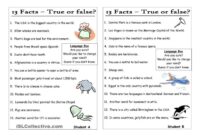Pernahkah Anda bertanya-tanya mengapa kitab suci dalam bahasa Inggris memiliki nama yang berbeda dengan bahasa aslinya? Mengapa “Genesis” dalam bahasa Inggris disebut “Kejadian” dalam bahasa Indonesia? Di balik perbedaan nama tersebut, terdapat sejarah panjang dan makna mendalam yang menghubungkan kitab suci dengan budaya, agama, dan bahasa. “The Book of Names in English” mengajak kita untuk menyelami dunia nama kitab dalam bahasa Inggris, menjelajahi asal usulnya, pengaruhnya pada penafsiran, dan bagaimana nama tersebut digunakan dalam literatur dan seni.
Dari pengaruh bahasa Latin dan Yunani hingga adaptasi budaya, perjalanan nama kitab dalam bahasa Inggris menunjukkan bagaimana bahasa dapat membentuk pemahaman kita tentang teks suci. Artikel ini akan membahas perbedaan dan persamaan nama kitab dalam bahasa Inggris dengan bahasa aslinya, serta makna simbolis dan spiritual yang terkandung di dalamnya.
The Names of Books in English
The English language, a vibrant tapestry woven from various threads, has inherited a rich history of naming books. This journey, spanning centuries, reflects the evolution of language, culture, and intellectual thought. Exploring the naming of books in English unveils the intricate relationship between language, tradition, and the enduring power of literature.
The Influence of Latin and Greek
The origins of many book names in English can be traced back to Latin and Greek, languages that served as pillars of Western intellectual thought. Latin, the language of the Roman Empire, exerted a profound influence on English vocabulary, particularly in the realm of religion, law, and science. Similarly, Greek, the language of ancient philosophers and scholars, contributed significantly to English terminology, especially in the fields of philosophy, mathematics, and literature.
The Bible, a cornerstone of Western literature and religious thought, provides a compelling example. The names of the books of the Bible, such as “Genesis,” “Exodus,” and “Revelation,” are derived directly from the Greek Septuagint, a translation of the Hebrew Bible into Greek. These names, rooted in ancient languages, have endured for centuries, becoming integral to English vocabulary and cultural understanding.
Evolution of Book Names Over Time
The names of books in English have evolved over time, reflecting shifts in language, culture, and literary trends. The influence of the Renaissance, a period of renewed interest in classical learning, led to the adoption of Latin and Greek names for many literary works. For instance, the works of William Shakespeare, such as “Hamlet” and “Romeo and Juliet,” bear titles derived from Latin and Greek sources.
The rise of English as a global language in the 18th and 19th centuries further influenced the naming of books. English authors began to experiment with more descriptive and evocative titles, often reflecting the themes and characters of their works. This trend continues today, with authors using a wide range of creative approaches to name their books, from concise and evocative titles to lengthy and descriptive ones.
Factors Influencing Changes in Book Names
Several factors have contributed to the evolution of book names in English. One significant factor is the changing social and cultural landscape. The rise of new literary genres, such as the novel and the short story, has led to new ways of naming books. Additionally, the increasing importance of marketing and branding has also influenced the naming of books, with authors and publishers seeking titles that are catchy and memorable.
- The emergence of new literary movements, such as Romanticism, Realism, and Modernism, has also impacted the naming of books. Each movement has brought with it a distinct set of aesthetic values and literary conventions, which have influenced the way authors have chosen to name their works.
- The influence of technology, particularly the rise of digital publishing, has also played a role in the evolution of book names. With the advent of online platforms and e-books, authors are now able to reach a wider audience, leading to a greater emphasis on titles that are easily searchable and shareable.
Names of Books in the English Bible
The English Bible is a translation of the original Hebrew and Greek texts. As such, the names of the books in the English Bible are often different from the names of the books in the original languages. This is due to a variety of factors, including the different ways that languages are structured, the different cultural contexts in which the books were written, and the different interpretations of the text by translators.
Comparing and Contrasting Names
When comparing the names of books in the English Bible to the names in the original languages, there are both similarities and differences. Some books have names that are very similar, while others have names that are quite different. This is due to a variety of factors, including the different ways that languages are structured, the different cultural contexts in which the books were written, and the different interpretations of the text by translators.
Significant Differences in Names
There are a number of significant differences in the names of books between various versions of the Bible. These differences are often due to the different interpretations of the text by translators. For example, the book of *Deuteronomy* in the English Bible is called *Devarim* in Hebrew, which means “words” or “speeches.” This is a more literal translation of the Hebrew text, while the English name *Deuteronomy* is a more descriptive translation, which refers to the fact that the book is a restatement of the law given to Moses.
Table of Book Names
| English Name | Original Language Name | Indonesian Translation |
|---|---|---|
| Genesis | בראשית (Bereishit) | Kejadian |
| Exodus | שמות (Shemot) | Keluaran |
| Leviticus | ויקרא (Vayikra) | Imamat |
| Numbers | במדבר (Bamidbar) | Bilangan |
| Deuteronomy | דברים (Devarim) | Ulangan |
| Joshua | יהושע (Yehoshua) | Yosua |
| Judges | שופטים (Shoftim) | Hakim-Hakim |
| Ruth | רות (Rut) | Rut |
| 1 Samuel | שמואל א (Shmuel Aleph) | 1 Samuel |
| 2 Samuel | שמואל ב (Shmuel Bet) | 2 Samuel |
| 1 Kings | מלכים א (Melachim Aleph) | 1 Raja-Raja |
| 2 Kings | מלכים ב (Melachim Bet) | 2 Raja-Raja |
| 1 Chronicles | דברי הימים א (Divrei HaYamim Aleph) | 1 Tawarikh |
| 2 Chronicles | דברי הימים ב (Divrei HaYamim Bet) | 2 Tawarikh |
| Ezra | עזרא (Ezra) | Ezra |
| Nehemiah | נחמיה (Nehemiah) | Nehemia |
| Esther | אסתר (Ester) | Ester |
| Job | איוב (Iyov) | Ayub |
| Psalms | תהילים (Tehillim) | Mazmur |
| Proverbs | משלי (Mishlei) | Amsal |
| Ecclesiastes | קהלת (Kohelet) | Pengkhotbah |
| Song of Solomon | שיר השירים (Shir HaShirim) | Kidung Agung |
| Isaiah | ישעיהו (Yeshayahu) | Yesaya |
| Jeremiah | ירמיהו (Yirmiyahu) | Yeremia |
| Lamentations | איכה (Eichah) | Ratapan |
| Ezekiel | יחזקאל (Yechezkel) | Yehezkiel |
| Daniel | דניאל (Dani’el) | Daniel |
| Hosea | הושע (Hoshea) | Hosea |
| Joel | יואל (Yoel) | Yoel |
| Amos | עמוס (Amos) | Amos |
| Obadiah | עובדיה (Obadyah) | Obadya |
| Jonah | יונה (Yonah) | Yona |
| Micah | מיכה (Michah) | Mikha |
| Nahum | נחום (Nachum) | Nahum |
| Habakkuk | חבקוק (Chavakuk) | Habakuk |
| Zephaniah | צפניה (Tzephaniah) | Zefanya |
| Haggai | חגי (Chagai) | Hagai |
| Zechariah | זכריה (Zekharyah) | Zakharia |
| Malachi | מלאכי (Mal’akhi) | Maleakhi |
| Matthew | Ματθαῖος (Matthaios) | Matius |
| Mark | Μάρκος (Markos) | Markus |
| Luke | Λουκᾶς (Loukas) | Lukas |
| John | Ἰωάννης (Ioannes) | Yohanes |
| Acts of the Apostles | Πράξεις τῶν ἀποστόλων (Praxeis ton apostolon) | Kisah Para Rasul |
| Romans | Προς Ῥωμαίους (Pros Romaious) | Roma |
| 1 Corinthians | Προς Κορινθίους Α (Pros Korinthious A) | 1 Korintus |
| 2 Corinthians | Προς Κορινθίους Β (Pros Korinthious B) | 2 Korintus |
| Galatians | Προς Γαλάτας (Pros Galatas) | Galatia |
| Ephesians | Προς Ἐφεσίους (Pros Ephesios) | Efesus |
| Philippians | Προς Φιλιππησίους (Pros Philippesious) | Filipi |
| Colossians | Προς Κολοσσαείς (Pros Kolossaeis) | Kolose |
| 1 Thessalonians | Προς Θεσσαλονικείς Α (Pros Thessalonikeis A) | 1 Tesalonika |
| 2 Thessalonians | Προς Θεσσαλονικείς Β (Pros Thessalonikeis B) | 2 Tesalonika |
| 1 Timothy | Προς Τιμόθεον Α (Pros Timotheon A) | 1 Timotius |
| 2 Timothy | Προς Τιμόθεον Β (Pros Timotheon B) | 2 Timotius |
| Titus | Προς Τίτον (Pros Titon) | Titus |
| Philemon | Προς Φιλήμονα (Pros Philemona) | Filemon |
| Hebrews | Προς Ἑβραίους (Pros Hebraious) | Ibrani |
| James | Ἰάκωβος (Iakobos) | Yakobus |
| 1 Peter | Πέτρος Α (Petros A) | 1 Petrus |
| 2 Peter | Πέτρος Β (Petros B) | 2 Petrus |
| 1 John | Ἰωάννης Α (Ioannes A) | 1 Yohanes |
| 2 John | Ἰωάννης Β (Ioannes B) | 2 Yohanes |
| 3 John | Ἰωάννης Γ (Ioannes G) | 3 Yohanes |
| Jude | Ἰούδας (Ioudas) | Yudas |
| Revelation | Ἀποκάλυψις Ἰωάννου (Apokalupsis Ioannou) | Wahyu |
Nama Kitab dalam Bahasa Inggris: Pengaruh pada Penafsiran
Nama kitab dalam bahasa Inggris, meskipun mungkin tampak sederhana, dapat memiliki pengaruh yang signifikan pada penafsiran teks kitab suci. Perbedaan dalam nama kitab dapat menyebabkan perbedaan dalam pemahaman, dan bahkan memicu perdebatan dan interpretasi yang berbeda.
Perbedaan Nama dan Penafsiran
Perbedaan nama kitab dalam bahasa Inggris dapat berdampak pada penafsiran teks karena nama tersebut dapat membentuk persepsi pembaca terhadap isi kitab. Misalnya, nama kitab “Genesis” dalam bahasa Inggris, yang berarti “asal-usul” atau “penciptaan,” dapat mengarahkan pembaca untuk fokus pada kisah penciptaan dan asal mula dunia.
Contoh Perdebatan dan Interpretasi
Perbedaan nama kitab dapat menyebabkan perdebatan dan interpretasi yang berbeda. Salah satu contohnya adalah kitab “Leviticus” dalam bahasa Inggris. Nama ini mengacu pada suku Levi, yang berperan sebagai imam dalam agama Yahudi. Namun, beberapa orang berpendapat bahwa nama ini tidak tepat karena kitab tersebut tidak hanya berisi hukum-hukum tentang para imam Levi, tetapi juga hukum-hukum lain yang berlaku bagi seluruh umat Israel.
- Perbedaan nama kitab ini dapat menyebabkan interpretasi yang berbeda tentang fokus dan tujuan kitab tersebut.
- Beberapa orang mungkin berfokus pada aspek hukum yang berkaitan dengan para imam Levi, sementara yang lain mungkin melihat kitab ini sebagai kumpulan hukum yang lebih luas.
Pengaruh Nama Kitab dalam Bahasa Inggris pada Penafsiran
Nama kitab dalam bahasa Inggris dapat memengaruhi penafsiran teks kitab suci dengan berbagai cara. Berikut beberapa contoh:
- Nama kitab dapat membentuk persepsi pembaca terhadap isi kitab.
- Nama kitab dapat mengarahkan pembaca untuk fokus pada aspek tertentu dari kitab tersebut.
- Nama kitab dapat memicu perdebatan dan interpretasi yang berbeda.
Names of Books in English

The names of books in English have a rich history and evolution, reflecting the influences of various languages and cultural contexts. This article explores the etymology of these names, tracing their origins and how they have changed over time. We will delve into the origins of these names, their meanings, and how they have evolved from other languages.
Etymology and Origin of Book Names in English
The names of books in English often have roots in other languages, particularly Latin, Greek, and Old English. These languages have contributed significantly to the vocabulary of English, including the names of many books. For instance, the word “book” itself comes from the Old English word “bōc,” which is derived from the Proto-Germanic word “bōkō,” meaning “beech tree.” This is because the ancient Germanic peoples used beechwood to make writing tablets.
Evolution of Book Names
The names of books in English have evolved over time, influenced by changes in language, culture, and the way books are produced and consumed. For example, the name “Bible” comes from the Greek word “biblia,” meaning “books.” This reflects the fact that the Bible is a collection of books, and the term was originally used to refer to any collection of sacred writings.
Table of Book Names in English
The following table provides a summary of the origins and meanings of some common book names in English.
| Book Name | Origin | Meaning |
|---|---|---|
| Bible | Greek (biblia) | Books |
| Quran | Arabic (al-Qur’an) | Recitation |
| Torah | Hebrew (Torah) | Instruction, law |
| Book of Mormon | English | A book of scripture for the Latter Day Saint movement |
| The Odyssey | Greek (Ὀδύσσεια) | The journey of Odysseus |
| The Iliad | Greek (Ἰλιάς) | The story of the Trojan War |
Book Names in English: Nama Kitab Dalam Bahasa Inggris

The English language is rich and diverse, and this diversity extends to the way we name books. Different regions and dialects have their own unique ways of referring to books, which can lead to variations in spelling and pronunciation. This article will explore the different variations and dialects in the use of book names in the English language.
Variations in Book Names, Nama kitab dalam bahasa inggris
One of the most noticeable variations in book names is the spelling of certain words. For example, the word “colour” is spelled “color” in American English. This difference in spelling can be seen in the names of books, such as “The Colour of Magic” by Terry Pratchett, which may be titled “The Color of Magic” in American English.
Another variation is the use of different words to describe the same thing. For example, the word “autumn” is used in British English, while “fall” is used in American English. This difference can be seen in the names of books, such as “Autumn Leaves” by Emily Brontë, which may be titled “Fall Leaves” in American English.
Dialectal Influences on Book Names
Dialectal influences can significantly impact the way book names are used. Different regions within the English-speaking world have their own distinct dialects, which can lead to variations in pronunciation, vocabulary, and grammar. These differences can be reflected in the names of books.
For example, in the Southern United States, the word “y’all” is commonly used as a plural form of “you.” This dialectal feature can be seen in the names of books, such as “Y’all Come Back” by Beth Henley.
Similarly, in the British Isles, there are a number of regional dialects, each with its own unique characteristics. These dialects can influence the pronunciation and spelling of book names.
Examples of Different Book Names
- The book “The Da Vinci Code” by Dan Brown is known as “The Da Vinci Code” in both British and American English. This is an example of a book name that is used consistently across different dialects.
- The book “The Lord of the Rings” by J.R.R. Tolkien is known as “The Lord of the Rings” in both British and American English. This is another example of a book name that is used consistently across different dialects.
- The book “Harry Potter and the Philosopher’s Stone” by J.K. Rowling is known as “Harry Potter and the Sorcerer’s Stone” in American English. This is an example of a book name that has been adapted to reflect the different dialects of English.
Penutupan

Memahami nama kitab dalam bahasa Inggris tidak hanya tentang mempelajari sejarah dan etimologi, tetapi juga tentang memahami bagaimana bahasa membentuk persepsi dan interpretasi kita terhadap teks suci. Dengan memahami makna dan konteks budaya yang terkandung dalam nama kitab, kita dapat memperoleh pemahaman yang lebih dalam tentang kitab suci dan pengaruhnya pada kehidupan manusia.






